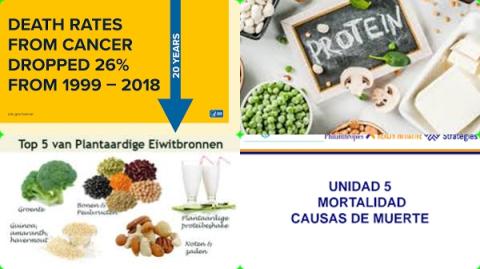
Objectives:
Is there a dose-response relation between intake of total, animal and plant protein and the risk of mortality from all causes, cardiovascular disease and cancer?
Study design:
This review article included 32 prospective cohort studies with 113,039 deaths (16,429 from cardiovascular disease and 22,303 from cancer) among 715,128 participants.
The follow-up period varied between 3.5 and 32 years.
The number of participants in these studies ranged from 288 to 135,335, with an age range between 19 and 101 years.
Most cohort studies controlled for some conventional risk factors, including BMI (n=24), smoking (n=22) and alcohol consumption (n=14).
Others also adjusted for physical activity (n=14), energy intake (n=25), other dietary variables (n=14) and macronutrients (fat or carbohydrate; n=12).
To examine protein intake, 11 studies had used dietary records or recalls, 19 had used a food frequency questionnaire and 2 had used overnight urine urea nitrogen.
Results and conclusions:
The investigators found when comparing the highest with the lowest intakes of total protein, intakes of total protein were associated with a lower risk of 6% for all-cause mortality [pooled effect size = 0.94, 95% CI = 0.89 to 0.99, I2 = 58.4%, p 0.001].
The investigators found when comparing the highest with the lowest intakes of plant protein, intakes of plant protein were associated with a lower risk of 8% for all-cause mortality [pooled effect size = 0.92, 95% CI = 0.87 to 0.97, I2 = 57.5%, p = 0.003].
The investigators found when comparing the highest with the lowest intakes of plant protein, intakes of plant protein were associated with a lower risk of cardiovascular disease mortality [pooled effect size = 0.88, 95% CI = 0.80 to 0.96, I2 = 63.7%, p = 0.001].
However, not with cancer mortality.
The investigators found when comparing the highest with the lowest intakes, intakes of total and animal protein were not significantly associated with risk of cardiovascular disease and cancer mortality.
The investigators found a dose-response analysis showed a significant inverse dose-response association between intake of plant protein and all-cause mortality [p = 0.05 for non-linearity].
The investigators found an additional 3% energy (3 En%) from plant proteins per day was associated with a 5% lower risk of death from all causes (all-cause mortality).
The investigators concluded higher intakes of total protein reduce all-cause mortality and higher intakes of plant protein are associated with a lower risk of all-cause and cardiovascular disease mortality. Replacement of foods high in animal protein with plant protein sources could be associated with longevity.
Original title:
Dietary intake of total, animal, and plant proteins and risk of all cause, cardiovascular, and cancer mortality: systematic review and dose-response meta-analysis of prospective cohort studies by Naghshi S, Sadeghi O, […], Esmaillzadeh A.
Link:
https://www.ncbi.nlm.nih.gov/pmc/articles/PMC7374797/
Additional information of El Mondo:
Find more information/studies on protein consumption, cardiovascular diseases and cancer right here.
A high-protein diet is a diet with 20-35 En% protein. The easiest way to follow a high-protein diet is to choose only products/meals with 20-35 En% protein. These products from the supermarket contain 20-35 En% protein.
20-35 En% protein means that the total amounts of protein contribute 20-35% to the total kcal of the relevant diet.